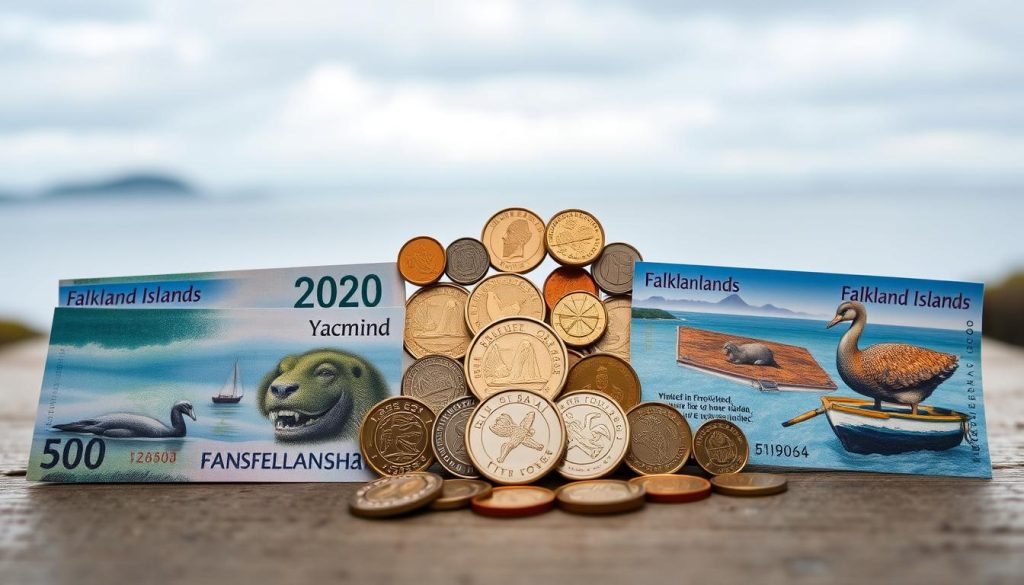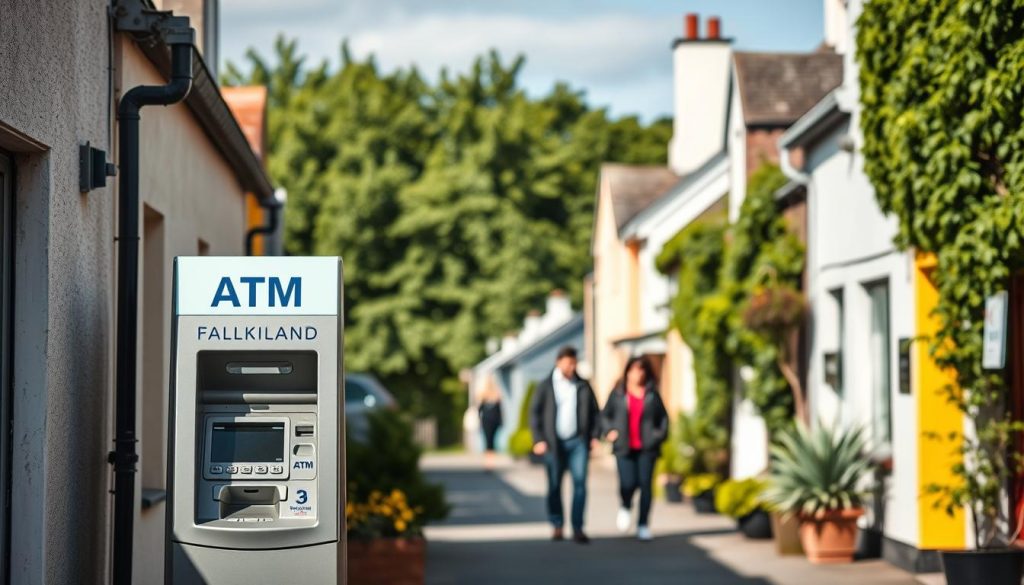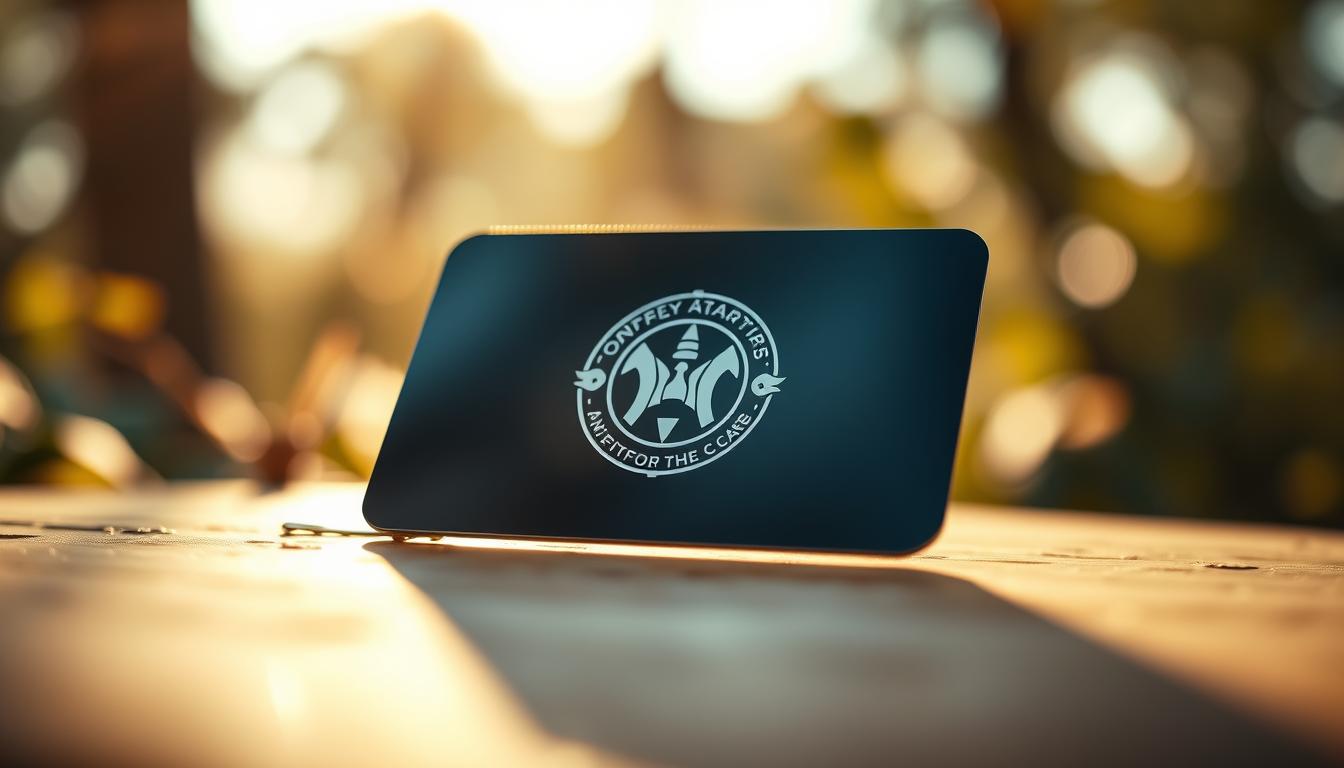Did you know that there’s only one ATM in this remote destination? Planning your finances is crucial when visiting places with limited banking options. This guide will help you navigate the unique currency and payment methods available, ensuring a smooth trip.
The local currency is the Falkland Islands Pound, which is equivalent to the British Pound. While English sterling is widely accepted, it’s wise to exchange your money before arriving to avoid high fees. Using travel cards like Wise or Revolut can simplify your financial management abroad.
From understanding exchange rates to managing cash and card payments, this guide covers everything you need to know. Whether you’re exploring local attractions or enjoying the wildlife, being prepared will make your adventure stress-free.
Introduction to Your Falkland Islands Adventure
Prepare for an unforgettable journey filled with penguins, seals, and breathtaking scenery. This remote destination offers a unique blend of wildlife, history, and rugged landscapes. Whether you’re a nature enthusiast or a history buff, there’s something for everyone.
What to Expect on Your Trip
Your adventure will be marked by close encounters with wildlife. Penguins, seals, and dramatic coastlines are just the beginning. The area is home to over a million penguins, including King, Gentoo, and Rockhopper species. You’ll also find Southern Sea Lions and Elephant Seals basking on the shores.
Historical sites, such as memorials from the 1982 conflict, add depth to your visit. Exploring these locations provides a glimpse into the region’s past. Make sure to include these landmarks in your itinerary for a well-rounded experience.
Planning and Preparation Tips
Proper planning is key to maximizing your enjoyment. Start by checking the weather, as conditions can change quickly. Layering your clothing ensures comfort during unpredictable weather. Technical gear like waterproof jackets and sturdy boots are essential.
Booking tours in advance is highly recommended. Popular activities include kayaking, hiking, and wildlife photography. Guided expeditions offer valuable insights and ensure you don’t miss hidden gems. Here’s a quick overview of must-see sites:
| Activity | Location | Cost (Approx.) |
|---|---|---|
| Penguin Watching | Volunteer Point | $230-$290 |
| Historical Tour | Stanley | $100-$150 |
| Kayaking | West Falkland | $200-$250 |
Don’t forget to pack essentials like a travel card for seamless transactions. While cash is accepted, having a credit card ensures you’re prepared for any situation. Travel insurance is also a smart investment to cover unexpected events.
By planning ahead and packing wisely, you can focus on enjoying every moment of your trip. From wildlife encounters to historical exploration, your adventure will be one to remember.
Understanding the Falkland Islands Currency Landscape
The Falkland Islands Pound is the official currency, and knowing its details can save you time and money. It’s pegged to the British Pound, ensuring a stable exchange rate. This makes it easier to plan your finances and avoid unexpected costs.

The Falkland Islands Pound Explained
The local currency is issued in both banknotes and coins. Banknotes come in denominations of £5, £10, £20, and £50, while coins include smaller values for everyday transactions. This variety ensures you’re prepared for purchases of all sizes.
Denominations and Exchange Rates
Understanding exchange rates is crucial for getting the best value. Pre-trip exchanges often offer better rates than airport counters. Using the mid-market rate ensures you avoid hidden fees. Here’s a quick guide to managing your currency:
| Denomination | Type | Best Use |
|---|---|---|
| £5, £10 | Banknotes | Small purchases, tips |
| £20, £50 | Banknotes | Accommodation, tours |
| Coins | Smaller values | Everyday items, snacks |
Monitoring exchange fluctuations can help you decide when to convert your money. While cash is handy for small transactions, using a credit card or travel card offers convenience and security. Planning ahead ensures you make the most of your trip without unnecessary costs.
Navigating Payment Methods on the Islands
When visiting remote destinations, understanding payment options is essential for a smooth experience. Whether you’re exploring bustling towns or secluded areas, knowing how to manage your money ensures you’re prepared for any situation.
Cash vs. Card: Which Option to Use
Using a credit card or debit card is convenient in urban centers like Port Stanley. Many shops, restaurants, and hotels accept cards, making transactions quick and easy. Contactless payments and mobile wallets are also gaining popularity in these areas.
However, cash is still king in remote regions. Smaller vendors and local markets often don’t have card machines, so carrying cash is a must. It’s also useful for tipping and small purchases. Balancing both options ensures you’re covered wherever you go.
Where and How to Make Payments Locally
In towns, you’ll find ATMs and banks for withdrawing cash or exchanging currency. Always check for security features before using an ATM to avoid potential risks. For remote areas, plan ahead and withdraw enough cash to last your stay.
Here’s a quick guide to managing your payments:
- Use cards for larger expenses like accommodation and tours.
- Carry cash for small purchases, tips, and remote areas.
- Keep your money safe by using a hidden pouch or money belt.
By understanding local payment methods, you can focus on enjoying your trip without financial stress.
Falkland Islands: Ultimate Travelers Guide to Currencies & Payments
Managing your money while traveling can make or break your trip. To avoid unnecessary stress, it’s essential to plan your financial strategy carefully. Using a combination of digital payment methods and cash withdrawals ensures you’re prepared for any situation.
Digital banking solutions like Wise or Revolut are excellent tools for managing transactions abroad. These platforms offer multi-currency support, allowing you to hold and exchange money at competitive rates. Always review fees and exchange rates before making a purchase to save on costs.

Tracking your spending is another crucial step. Secure apps provided by your bank or digital wallet let you monitor your account in real-time. This helps you stay within budget and quickly spot any unauthorized charges.
In remote areas, cash is often the only option. Withdraw enough money in advance to avoid inconvenience. Remember, travel insurance is a smart investment to cover unexpected financial issues.
Tips for Secure and Seamless Payments
Security is paramount when handling transactions abroad. Use credit cards or debit cards with fraud protection features. Avoid using public Wi-Fi for financial transactions to prevent data breaches.
Here are some expert tips to ensure smooth payments:
- Notify your bank about your travel plans to avoid card blocks.
- Carry a mix of cash and cards for flexibility.
- Use secure apps to monitor your account activity.
By following these guidelines, you can focus on enjoying your trip without worrying about financial hiccups. Efficient money management ensures a seamless and stress-free travel experience.
Travel Cards for Seamless Transactions
Travel cards are a game-changer for managing your finances abroad. They simplify multi-currency spending, reduce fees, and offer security. Whether you’re exploring remote areas or bustling cities, the right travel card ensures you’re prepared for any situation.
Wise Travel Card Features and Benefits
The Wise travel card stands out for its transparency and cost-effectiveness. It uses the mid-market exchange rate, ensuring you get the best value for your money. With support for over 40 currencies, it’s perfect for frequent travelers.
Key benefits include free ATM withdrawals up to a monthly limit and low fees thereafter. You can also hold and manage multiple currencies in one account, making it easy to switch between them. This flexibility saves time and money during your trip.
Revolut Travel Card Advantages
Revolut offers a range of account tiers, each with unique perks. From basic plans to premium options, you can choose what suits your needs. Premium accounts include travel insurance, lounge access, and higher ATM withdrawal limits.
Revolut also supports multiple currencies and provides real-time exchange rates. Its app lets you track spending, set budgets, and freeze your card if needed. These features make it a versatile choice for travelers.
Choosing the Right Travel Card
When selecting a travel card, consider your spending habits and travel plans. If you value low fees and transparent rates, Wise is an excellent option. For added perks like insurance and lounge access, Revolut might be the better choice.
Both cards can be ordered online before your trip, ensuring you’re ready to go. Here’s a quick comparison to help you decide:
| Feature | Wise | Revolut |
|---|---|---|
| Exchange Rate | Mid-market | Real-time |
| ATM Withdrawals | Free up to limit | Varies by plan |
| Currencies Supported | 40+ | Multiple |
| Additional Perks | None | Insurance, lounge access |
By choosing the right travel card, you can focus on enjoying your trip without worrying about financial hassles. Whether it’s Wise or Revolut, both options provide convenience and savings for your adventures.
How to Prepare Your Finances Before Departure
Smart financial preparation is the key to a smooth travel experience. By organizing your funds and setting a clear budget, you can avoid unnecessary stress and focus on enjoying your adventure. Here’s how to get started.
Pre-trip Budgeting Strategies
Start by estimating your daily expenses, including meals, transportation, and activities. Allocate extra funds for emergencies or unexpected costs. A good rule of thumb is to set aside 10-20% of your total budget for contingencies.
Consider using budgeting apps to track your spending. These tools help you stay on top of your finances and adjust your budget as needed. Planning ahead ensures you won’t overspend or run out of money during your trip.
“A well-planned budget is your best travel companion. It keeps you prepared for any situation.”
Securing Your Funds with the Right Card
Using a dedicated travel card simplifies managing your money abroad. Cards like Wise or Revolut offer competitive exchange rates and low fees. They also allow you to hold multiple currencies, making transactions seamless.
Here’s a quick comparison of popular travel cards:
| Feature | Wise | Revolut |
|---|---|---|
| Exchange Rate | Mid-market | Real-time |
| ATM Withdrawals | Free up to limit | Varies by plan |
| Currencies Supported | 40+ | Multiple |
| Additional Perks | None | Insurance, lounge access |
Top up your digital accounts before departure through online banking. This ensures you have access to funds as soon as you arrive. By securing your finances with the right tools, you can enjoy a worry-free journey.
Finding the Best Rates: Currency Exchange Strategies
Securing the best exchange rates can significantly impact your travel budget. Whether you’re planning a short trip or an extended stay, knowing how to exchange your money wisely ensures you get the most value. Avoid costly mistakes by following these practical strategies.
Avoiding Expensive Airport Exchanges
Airport exchange counters are convenient but often charge higher fees and offer less competitive rates. These kiosks capitalize on travelers’ immediate needs, leading to unfavorable deals. For example, exchanging $500 at an airport could cost you up to 10% more compared to local banks or online platforms.
Instead, plan ahead and exchange a small amount of currency before your trip for immediate expenses. This way, you can avoid the high costs associated with airport services. Use a travel card for seamless transactions upon arrival, saving you time and money.
Local Bank and Online Exchange Options
Local banks in the Falkland Islands often provide better rates than airport kiosks. They are a reliable option for exchanging larger amounts of currency. Additionally, online platforms like Wise or Revolut offer competitive rates and low fees, making them ideal for travelers.
Here’s how to secure favorable rates:
- Compare rates among different providers to find the best deal.
- Lock in rates before departure using online platforms.
- Use a travel card with multi-currency support for flexibility.
By choosing the right exchange method, you can save money and focus on enjoying your trip. Remember, a little planning goes a long way in maximizing your travel budget.
Local Financial Services and ATM Access on the Islands
Accessing your money in remote areas requires careful planning and awareness of local financial services. While ATMs are available in the capital, Stanley, they are less common in other regions. Knowing how to use them safely and exploring alternative payment methods can enhance your trip.

Tips for Using ATMs Safely
When using ATMs, always check for signs of tampering or suspicious devices. Cover your PIN while entering it to prevent unauthorized access. Choose ATMs located in well-lit, secure areas, preferably inside banks or major establishments.
It’s also a good idea to notify your bank about your travel plans. This prevents your card from being blocked due to international transactions. Keep emergency contact numbers handy in case you encounter issues.
Leveraging Mobile Wallets for Convenience
Mobile wallets like Apple Pay have become a popular alternative for contactless payments. They are widely accepted in urban areas and offer a secure way to make transactions without carrying cash. Simply link your credit or debit card to the app for seamless payments.
Using mobile wallets also reduces the need for physical currency, making it easier to manage your funds. Ensure your device is protected with a strong password or biometric lock for added safety.
Here’s a quick comparison of payment options:
| Option | Best Use | Tips |
|---|---|---|
| ATM | Cash withdrawals | Check for security features, cover PIN |
| Mobile Wallet | Contactless payments | Link to a secure card, protect device |
| Card | Larger purchases | Notify bank, monitor transactions |
By understanding local financial services, you can avoid unexpected fees and ensure a smooth trip. Whether you prefer cash or digital payments, planning ahead is the key to a stress-free experience.
Tourist Tips for Safe and Efficient Payment Solutions
Protecting your money while traveling is as important as planning your itinerary. A secure financial strategy ensures you can focus on enjoying your trip without worrying about fraud or unauthorized charges. Here’s how to manage your payments safely and efficiently.
Preventing Fraud and Unauthorized Charges
Fraud can happen anywhere, so vigilance is key. Always use secure networks for financial transactions. Avoid public Wi-Fi when accessing your bank accounts or making payments. This reduces the risk of data breaches.
Set up transaction alerts on your card to monitor activity in real-time. This helps you spot unauthorized charges quickly. Regularly review your financial statements to ensure all transactions are legitimate.
Keep a record of receipts and compare them with your statements. If you notice discrepancies, contact your bank immediately. Notifying your bank about your travel plans also prevents your card from being blocked due to international transactions.
Ensuring a Smooth Financial Journey
A smooth financial journey starts with preparation. Use reliable cards with fraud protection features. This minimizes the risk of financial fraud while traveling. Always carry a backup card in case of emergencies.
Here’s a quick guide to managing your payments securely:
| Tip | Action |
|---|---|
| Use Secure Networks | Avoid public Wi-Fi for financial transactions |
| Set Up Alerts | Monitor transactions in real-time |
| Notify Your Bank | Inform them of your travel plans |
| Keep Records | Save receipts and compare with statements |
By following these tips, you can enjoy your trip without financial stress. A little preparation goes a long way in ensuring a seamless and secure experience.
Integrating Currency Management with Your Travel Planning
Planning your finances is more than just budgeting—it’s about aligning every aspect of your trip with smart currency management. From booking accommodations to arranging tours, every decision can impact your overall experience. By integrating effective financial strategies, you can avoid unexpected costs and enjoy a seamless journey.

Booking Accommodations and Tours with Currency in Mind
When booking accommodations and tours, consider the local currency and payment methods. Many providers accept cards, but some may prefer cash, especially in remote areas. Always check the payment options before confirming your reservation to avoid last-minute surprises.
Exchange rates can also affect your budget. Booking in advance allows you to lock in favorable rates and avoid fluctuations. Using a travel card with multi-currency support can simplify transactions and save on fees.
Maximizing Financial Benefits on Your Trip
To get the most out of your trip, use strategies that maximize financial benefits. For example, using a travel card can help you avoid extra fees and secure better deals. These cards often offer competitive exchange rates and low transaction costs.
Tracking your spending is another crucial step. Use budgeting apps or your card provider’s tools to monitor expenses in real-time. This helps you stay within budget and quickly spot any unauthorized charges.
“A well-planned financial strategy enhances your travel experience by eliminating unexpected costs.”
Here’s a quick comparison of payment options to help you decide:
| Option | Best Use | Tips |
|---|---|---|
| Travel Card | Multi-currency transactions | Choose one with low fees and competitive rates |
| Cash | Remote areas, small purchases | Withdraw enough before heading to rural areas |
| Credit Card | Larger expenses, urban areas | Notify your bank about your travel plans |
By integrating these strategies into your travel planning, you can focus on enjoying your trip without financial stress. A little preparation goes a long way in ensuring a smooth and memorable experience.
Conclusion
Planning your finances wisely ensures a smooth and enjoyable trip. From understanding the local currency to navigating payment methods, this guide has covered essential tips to help you manage your money effectively. Using a travel card can simplify transactions, reduce fees, and provide security during your journey.
Pre-trip budgeting and safe ATM practices are crucial for avoiding financial stress. Always notify your bank about your travel plans and monitor transactions to prevent fraud. Integrating these strategies into your planning ensures you’re prepared for any situation.
By applying these tips, you can focus on enjoying your adventure without worrying about financial hiccups. Explore more resources to stay updated on travel insights and make your next trip even better. Safe travels!
The above is subject to change.
Check back often to TRAVEL.COM for the latest travel tips and deals.







0 Comments